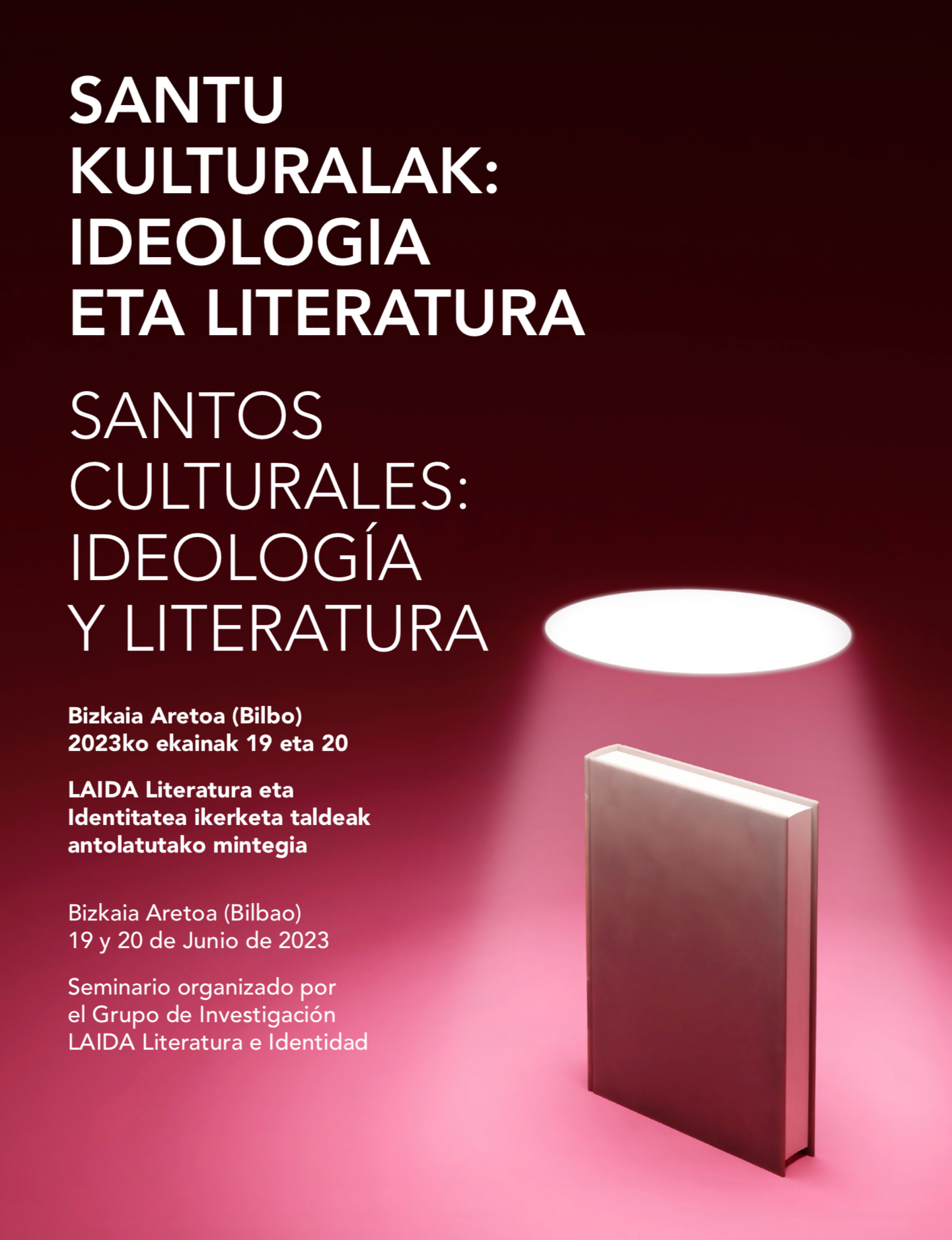Seminar «Cultural saints: ideology and politics» (Bilbao, June 19-20, 2023)
Seminar «Cultural saints: ideology and politics» (Bilbao, June 19-20, 2023)
The seminar "Cultural Saints: Ideology and Literature", organized by the LAIDA group and led by Jon Kortazar, has brought together researchers from various peninsular universities at the Bizkaia Aretoa University (Bilbao) linked to the LAIDA (UPV/EHU) research groups, CALIBRAM and ESCORE.


Dovic and Helgasson's theory of "Cultural Saints" has been the starting point for the analysis of the reception of writers from all peninsular languages. A method that has been applied to authors from old ages, sanctified from the 19th century, but also to others who, belonging to the 20th century, have followed parallel processes.

Professor Santi Pérez-Isasi from the University of Lisbon presented the case of the Baroque writer Calderón de la Barca: in his second centenary (1881) there was a failed attempt to canonize him. From the same university, Angela Fernandes, introduced us to Camoes from the Iberian appropriation of the Portuguese writer. On Portuguese literature, professor Antonio Sáez Delgado from the University of Évora spoke about the case of Fernando Pessoa: despite the lack of a consensus edition of his complete work, his popularity based on heteronyms places him as a true cultural saint.
Basque writers played a central role in the seminar and it was a great opportunity to discover names that many of us who attended did not know. Studies on Bizenta Moguel edited by Miren Gabantxo were presented; the playwright José M. Ipaguirre curated by Karlos del Olmo; José Mari Aguirre analyzed by Paulo Kortazar; Esteban Urkiaga (Lauaxeta) for Jon Kortazar; Gabriel Aresti presented by José Antonio Morlesín and Sussana Jodra; and the case of Xabier Lete and Mikel Laboa analyzed by Jon Martin. The case of Roberto Laxat, a Basque writer established in the USA, was also presented, by Alison Posey of Pepperdine University in California.


The professor at the University of Extremadura, Iolanda Ogando, presented the case of Rosalía de Castro as a cultural saint who has transcended to the present day, highlighting interesting elements that can be interpreted as "Post Literature". A case similar to the one presented by Carme Torrents, from Pompeu Fabra University, about the sanctification of the poet Verdaguer until he became a brand. Catalan literature was also addressed by the professor of the University of Barcelona, Bernat Padró, he presented the figure of Joan Fuster, who despite his popularity in certain sectors of society escapes official canonization, and Jesús Revelles, of the University of the Balearic Islands, spoke about how Josep Pla contributed to his own canonization.

In summary, a panorama was drawn on the sanctification or non-sanctification of fifteen writers in Iberian languages. Checking the case of authors from hegemonic literatures against those of marginalized ones shows that we need many joint studies on this topic. Comparative studies open up greater potential for research.
Carme Torrents Buxó, ESCORE

